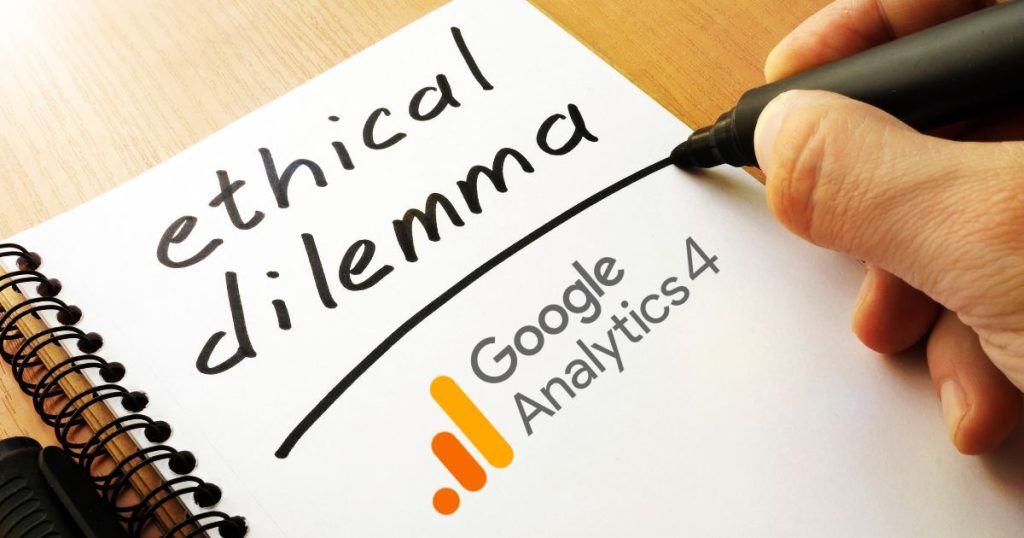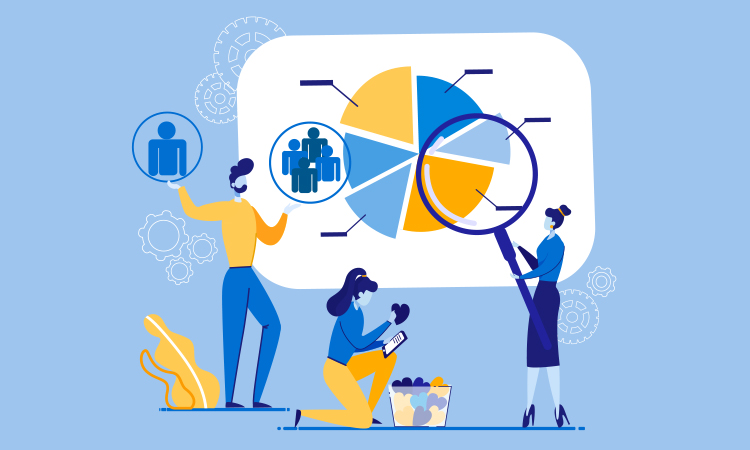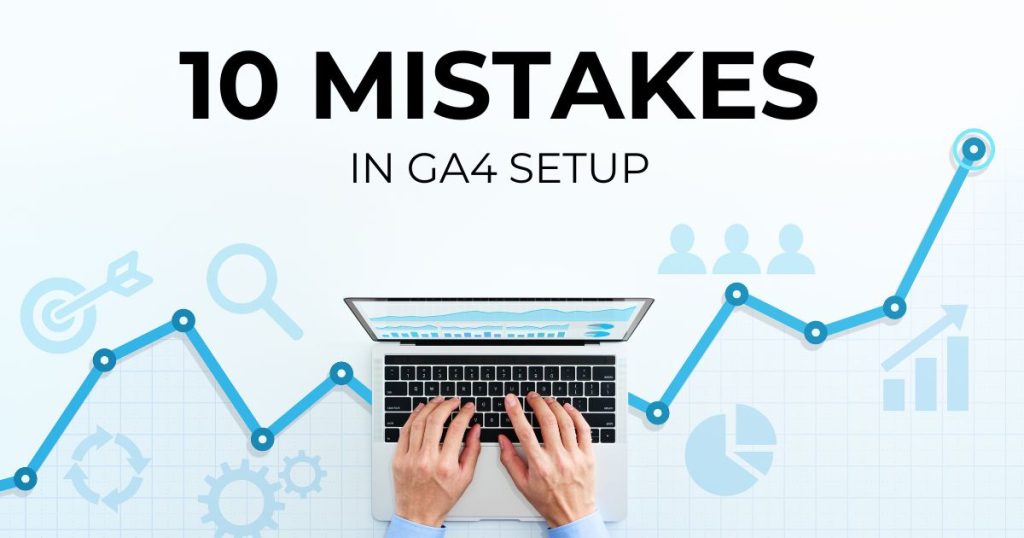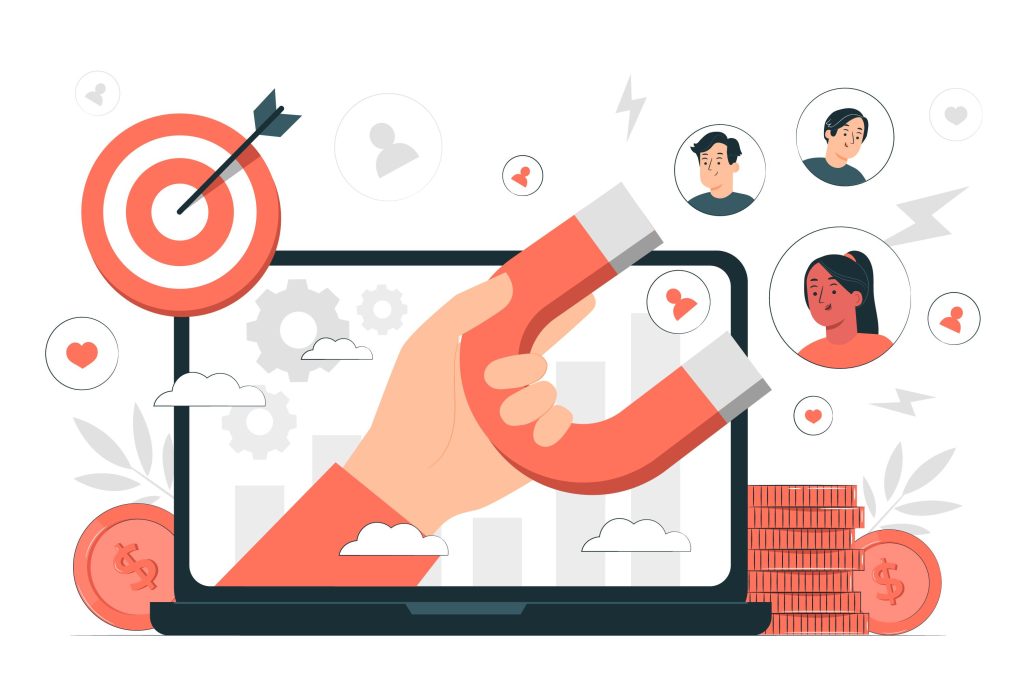Today, we’re diving into the world of Google Analytics, specifically its newest update, Google Analytics 4 (GA4). For those of us who rely on digital tools to understand our audience, GA4 is a big deal. It’s like the new, upgraded gadget that promises to give us even better insights into how people use our websites and apps.
But, as we all get excited about these new features, there’s a question lurking in the background: What about privacy? With GA4, we’re getting more detailed data than ever, but is this at the expense of user privacy and security?
In this blog, we’re going to examine this issue. We’ll see if the improved features of GA4 might have both benefits and drawbacks in terms of user data protection. So, let’s begin and discover what GA4 implies for the future of analytics and privacy.
If you’re seeking assistance or have any questions about GA4, our team of experts is here to help. Visit us at Goodish Agency to learn more about our services and how we can support your journey with GA4.
Understanding GA4 and Its Advanced Features
If you are not familiar with the changes and advancements comparing GA4 to UA, then take a look at a blog we have written where you can learn what these changes are.
The Rising Importance of Data Privacy

In today’s world, data privacy is a big deal. It’s like a spotlight shining on how companies collect and use our personal information. With so much of our lives happening online, keeping our data safe is more important than ever. Let’s talk about what’s happening around the world in terms of data privacy and why people are so concerned about it.
Global Data Privacy Regulations
GDPR (General Data Protection Regulation): This is a big law in Europe that started in 2018. It’s all about protecting people’s personal data. Companies have to be really clear about what data they’re collecting and why. They also need to make sure this data is super safe.
CCPA (California Consumer Privacy Act): Similar to GDPR, but in California. Since 2020, this law lets people in California know what data companies have about them and even say no to having their data sold.
These laws show that many places around the world are taking data privacy seriously. They’re making rules to make sure companies treat our personal information with care.
What People Think About Data Privacy
People are getting more worried about their data. We hear stories about data breaches, where personal information gets stolen, and that makes everyone a bit nervous. Here’s what’s on people’s minds:
Concerns About Personal Data: People are asking, “Is my data safe? What are companies doing with my information?” There’s a growing demand for transparency and control over personal data.
Trust Issues: When companies have data problems, like leaks or misuse, it makes people trust them less. Everyone wants to feel confident that their data is in good hands.
Wanting More Control: More and more, people want to have a say in how their data is used. They like laws like GDPR and CCPA because they give them more power over their own information.
GA4’s Approach to Data Privacy
Google Analytics 4 (GA4) is stepping up its game when it comes to data privacy. With all the concerns about keeping personal information safe, GA4 has introduced some amazing features to make sure it respects user privacy. Let’s break down how GA4 is handling data privacy and what Google is doing to align with global privacy laws.
How GA4 Protects User Privacy
User Anonymization:
One of the cool things GA4 does is anonymize user data. This means it removes or hides personal details that could identify someone. So, when you’re looking at your analytics, you’re not seeing specific, personal info about your users.
Consent Features:
GA4 has built-in tools that help businesses get consent from users before collecting their data. This is super important because laws like GDPR require that users agree to have their data collected.
These consent features make it easier for businesses to follow the rules and for users to feel in control of their data.
Flexible Data Collection:
GA4 lets businesses customize what data they collect. This flexibility means you can adjust your data collection to meet different privacy laws from around the world.
Adapting to Regulations:
Google is constantly updating GA4 to keep up with global data privacy laws like GDPR and CCPA. They’re working to make sure GA4 meets the legal requirements in different countries and regions.
Transparency and Control:
Google is also focusing on being more transparent about how data is collected and used in GA4. They’re giving users more control over their data, which is a big deal for privacy.
Regular Updates and Improvements:
The world of data privacy is always changing, and so is GA4. Google keeps updating it to make sure it stays compliant with new laws and regulations.
If you want to read more about GA4 and its privacy, take a look at GA4 and Data Privacy | What You Need to Know.
Convenience vs. Security in GA4

When we talk about Google Analytics 4 (GA4), there’s a bit of a balancing act between getting really detailed analytics and making sure we’re not risking user privacy. Let’s take a look at the trade-offs between these two and what it means for user privacy.
The Trade-Offs
Detailed Analytics:
GA4 offers a lot of detailed information about how users interact with your website or app. This is super helpful for businesses because it lets them make smart decisions based on what their users like or don’t like.
However, the more details you collect, the more you have to think about keeping that information safe and private.
Data Privacy Risks:
With all this detailed data, there’s a risk that sensitive user information might be exposed, especially if it’s not handled properly.
There’s also the concern that collecting too much data might make users uncomfortable, especially if they’re not clear on why it’s being collected.
Potential Vulnerabilities
Data Breaches:
One big worry is data breaches, where private information gets leaked. Even with a tool as sophisticated as GA4, if the data isn’t secured properly, there’s a risk it could get into the wrong hands.
Overstepping Boundaries:
There’s a fine line between collecting useful data and collecting too much. If users feel like their privacy is being invaded, they might lose trust in your business.
GA4’s Impact on User Privacy
Balancing Act:
GA4 tries to balance giving businesses the data they need while protecting user privacy. It has features like data anonymization and consent management to help with this.
But it’s still up to businesses using GA4 to make sure they’re not collecting more data than they need and that they’re keeping it safe.
Staying Compliant:
With GA4, businesses need to stay on top of privacy laws and make sure they’re using the tool in a way that’s compliant. This means being transparent with users about what data is being collected and why.
Best Practices for Using GA4 While Ensuring Privacy
Using Google Analytics 4 (GA4) effectively while keeping user privacy in tricky. You want to gather useful data to grow your business, but you also need to respect your users’ privacy. Here are some best practices and tips to help you maintain this balance.
Tips for Balancing Analytics and Privacy
Collect Only What You Need:
It’s tempting to collect all sorts of data, but it’s better to only gather what you really need. Think about the specific insights you want from GA4 and adjust your data collection settings accordingly.
Use Data Anonymization:
GA4 has features that let you anonymize user data. This means stripping away personal details that could identify someone. It’s a good way to protect privacy while still getting valuable insights.
Stay Informed About Privacy Laws:
Laws about data privacy can vary from place to place. Make sure you know the rules, especially GDPR and CCPA, and make sure your use of GA4 complies with them.
Get User Consent:
Always ask users for their consent before collecting their data. Be clear about what you’re collecting and why. GA4 has tools to help manage user consent.
Regularly Review Your Data Practices:
Periodically check how you’re using GA4 and what data you’re collecting. Make sure you’re still following best practices and staying compliant with laws.
Transparent Data Policies and Ethical Data Usage
Be Transparent with Users:
Have a clear and easy-to-understand privacy policy. Let users know what data you’re collecting, why you’re collecting it, and how it will be used.
Ethical Data Usage:
Use the data you collect responsibly. This means not sharing it inappropriately and ensuring it’s used in ways that benefit your users.
Educate Your Team:
Make sure everyone in your business understands the importance of data privacy. They should know how to use GA4 responsibly and protect user data.
Secure Data Storage and Handling:
Keep the data you collect secure. This means protecting it from unauthorized access and breaches.
Be Ready to Respond to User Queries:
If users have questions about their data, be ready to answer them. This builds trust and shows that you take privacy seriously.
Conclusion
It’s clear that Google Analytics 4 (GA4) is really useful for businesses, especially those offering software services. It gives detailed insights into user behavior, but it also raises important questions about keeping user data safe and private.
In this blog, we’ve looked at how GA4 meets strict data privacy rules like GDPR and CCPA, and how its features like hiding user details and managing user permissions help businesses use data responsibly. We also talked about the risks of collecting too much data and the importance of handling data carefully to avoid breaches.
The main point is that while GA4 is great for getting detailed user data, businesses need to be careful and responsible with this information, always putting user privacy first. It’s all about using data in a way that’s ethical and clear to users.
For companies using GA4 and trying to balance getting good insights with protecting user privacy, it’s important to stay up-to-date and use data in the right way. If you’re finding this challenging, don’t worry – there’s help available.
Our team at Goodish Agency is here to assist you with using GA4 effectively while keeping user data safe. If you have any questions or need help, feel free to contact us.
We at Goodish agency are experts in digital marketing and we can help you to utilize AI to reduce your costs and boost your performance. Read more about our services.











